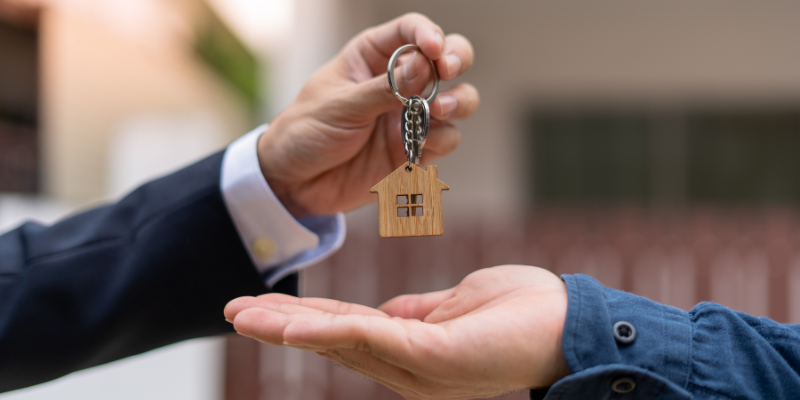
It can be hard to sell your house and move out in Louisiana. Even more so when it comes to how long you can stay in your home after the closing. This guide tells you everything you need to know about the rules and laws for moving in after the closing, making it easy to plan your move. We will discuss common lease terms, including when they are due and what might happen if you don’t vacate on time. After that, you can be sure that you can sell your house. There are many things that could go wrong, but our tips will help you navigate them all.
Key Highlights
- Post-closing occupancy allows Louisiana sellers extra time after the sale, optimizing transitional logistics.
- Negotiating clear closing and possession dates mitigates potential conflicts and ensures smooth transitions.
- An occupancy agreement outlines responsibilities, preventing disputes over possession and property use.
- Post-closing occupancy offers financial flexibility, but it requires careful planning to avoid associated risks.
- Resolving holdover seller issues requires clear contracts and compliance with Louisiana state laws.
Understanding Post-Closing Occupancy in Louisiana
If you plan to sell your home for cash in Louisiana, soon, be aware of the potential for post-closing rentals. For this part, they can stay in the house after the closing. This gives them time to prepare for departure. In Louisiana, this is a common practice; however, specific rules must be followed. How does “post-closing occupancy” change your possession? What are your duties under the agreement? Here are the key things you need to know to navigate this process. You can learn how to sell your home in a smart way by reading this guide. It will talk about these things.
What is Post-Closing Occupancy?
This means that they can stay in the house for a short time after the closing date, provided the seller agrees. This arrangement provides sellers with considerable flexibility if they need more time to relocate, organize their belongings, or find their next home. Less stress is caused by not having to leave right away, and the shift goes more smoothly when it’s busy.
Most of the time, the terms of moving in after the closing are included in the purchase agreement in Louisiana. Both parties should agree on the duration of their stay, any applicable rental fees, and who will be responsible for paying the bills, making repairs, and maintaining the property during their stay. These terms are clear from the start, so that both the buyer and the seller know what to expect. They also help keep the close safe and stress-free.
A good agreement also discusses potential issues, such as the seller staying longer than planned, which could lead to legal trouble. If someone rents something, often the rent is based on how much it costs the buyer to move the item. These steps ensure the seller receives payment while the buyer resides in the home. This is better for everyone if the sellers are aware of it and document it before the close. This will expedite the moving-out process and eliminate any issues.
Planning for a Flexible Closing Date in Louisiana

Setting a flexible close date is important for both the seller and the buyer when selling a home. This is especially important in Louisiana, where usage after closing may be a factor. Understanding how the closing date and possession date relate to each other helps sellers prepare for a smooth move out of their current home. This section will provide more detail about these aspects, primarily explaining how setting these times can help ensure that everyone knows what to expect and that the home sale proceeds smoothly.
Defining the Closing Date and Possession Date
Once you decide to sell your house fast for cash in New Orleans, LA, and surrounding areas, it can be challenging to coordinate the closing date and the day you take possession of the keys. There is a link between these two separate events. At the closing date, the buyer pays the seller and transfers the title to them. For real, this is when the title changes hands. After the closing, the seller may still live in the house for a while. To that end, the date of ownership is also very important. This is when the customer really takes over. Ensuring everyone is aware of the move-in and move-out dates helps the process go smoothly and allows both the buyer and the seller to know what to expect.
The lawyers for both sides need to work together to set these times. They might have to move in by a certain date to meet loan requirements or simply because that’s when it works best for them. But they might need more time to plan their next move. It’s better for everyone if these needs are made clear and the agreed-upon times are documented. Putting this deal in writing helps keep things on track, builds trust, and makes you think about what will really happen.
If a buyer needs to move later than planned, allowing themselves extra time to collect the keys after closing can be beneficial. In Louisiana, it is common for sellers to establish a short occupancy agreement after the closing. Who will cover the costs of electricity, insurance, and repairs? This contract outlines the buyer’s stay duration, rental amount, and other relevant details. With clear language, everyone can understand each other better, and fights are less likely to happen. Along with these agreed-upon times, having a well-planned moving schedule makes the process even easier. This way, everyone can feel prepared and supported during the final steps of the sale.
Advantages and Disadvantages of Post-Closing Occupancy
For Louisiana buyers, plans to move in after the closing can be either beneficial or detrimental. These pros and cons will help you determine the best approach to staying in the house after the closing. This section will discuss the pros and cons for the seller, including the benefits of giving them more time to relocate, as well as potential drawbacks, such as legal issues and financial implications. They can handle tricky issues that arise after the deal is done more effectively if they can see things from both sides. This ensures that the entire process proceeds smoothly.
Benefits for the Seller
Post-closing occupancy is particularly helpful for buyers, as it provides a much-needed break during the stressful process of moving. One of the best aspects of it is that it gives buyers more time to plan their move without having to leave immediately. This is especially helpful in Louisiana’s fast-paced real estate market, where it can be hard to time the sale of one home with the buying of another. Sellers can move at a more manageable pace if they have more time to pack, book movers, and plan logistics.
One of the biggest benefits is not having to stay in temporary housing, which can be expensive, annoying, and hard to deal with. Instead of running into a short-term rental or figuring out how to store their things, sellers can stay in a place they are used to while they decide what to do next. Families especially benefit from this stability because kids can continue attending school without being pulled out, habits remain the same, and the move as a whole is less stressful and more organized.
Occupancy after closing can also serve as a cash cushion. Rental fees agreed upon for the occupancy time usually match the buyer’s carrying costs. This makes temporary housing affordable without requiring two separate payments. During this time, the seller can also ensure that their next home is fully ready, which may involve fixing up, remodeling, or simply preparing it for the new owner to move in. When used wisely, post-closing occupancy can be both a financial and logistical safety net. It can help with a smoother, more planned transition and make the whole selling process more satisfying.
Potential Risks and Challenges

It can be beneficial to be able to live in the house after the closing, but buyers should also be aware of potential issues that could arise. There is considerable concern about potential issues with the law or contracts if the deal isn’t clear. If you don’t fully explain a term, it can lead to disagreements about the cost of hiring someone, who is responsible for what, and the duration of the stay. If sellers want to keep things clear, they should write down and agree to all the important details, such as due dates, payment terms, utilities, and upkeep tasks.
There are also risks to one’s finances, especially in terms of security, while living there. When the buyer takes ownership of the house, the seller no longer has to pay for insurance. This could be a problem if something breaks or goes wrong while the seller is still living there. If a buyer wants to move in after the closing, they should call their insurance company to ensure they are covered. They won’t have to pay for things they didn’t plan for.
You could also overstay, which is also referred to as “holding over.” They might get in trouble with the customer and the law if they don’t leave by the agreed-upon date. The changes in the Louisiana real estate market could also make it difficult to communicate or lead one side to believe that the agreed-upon terms are not fair. This won’t happen if people who want to sell their home plan ahead, are honest with each other, and get help from their real estate agent. If you plan it correctly, post-closing occupancy can be a useful tool rather than a source of trouble.
Utilizing an Occupancy Agreement in Louisiana
In Louisiana, the seller must sign a rental agreement if they wish to remain in the house after the closing. This official document informs both the buyer and the seller about the individuals who will be living in the house for a short time. If the rules are written down, everyone will be able to agree on them during the move and not fight over who owns what. This guide will help you make a good rental agreement. What should you think about most? What are the rules, and how do you decide how long you can live there? People will be able to buy a house more quickly if they are aware of these factors.
Key Elements of a Strong Occupancy Agreement
Anyone who wants to stay in the house after the sale should be able to get a good deal. Everyone should be aware of their rights and responsibilities under the agreement. They should know when they need to leave and how long they can stay. This plan needs to be fair and take into account any possible moving delays so that no one gets stuck.
The terms of the money are also very important. Most of the time, the seller charges the buyer the same amount of rent as it costs them to keep the house, which includes taxes, insurance, and the mortgage. This way, they won’t have to worry about money. In the contract, it should also be clear who is responsible for paying for items such as rent, electricity, repairs, and other daily expenses. These points should be made clear from the start to keep everyone on track and to inform the seller of their short-term living costs.
It should also outline how to maintain the house and what repairs are needed while the seller is still living there. You may avoid arguments about damage later if you document the house’s condition with photographs or written descriptions. It’s essential to be open and honest when writing. Additionally, buyers should consult with a professional to ensure they are complying with Louisiana law. How to pay rent and other fees, how to settle disputes, how to make changes, how to terminate the agreement, and the rules for guests are all things that you and the property owner agree upon. This is a good plan that ensures fairness for everyone.
Duration and Terms for Occupying the Property
Agreeing on the right terms and amount of time is crucial when negotiating a deal to move in after the closing. The seller should decide how long they stay in the house based on their needs, such as when they need to close on their next home or if they might be late moving. Most of the time, these contracts in Louisiana let the buyer move in anywhere from a few days to a few weeks. This gives the sellers some freedom while the buyer moves in. Setting these times early on keeps things clear and stops the seller from overstaying by accident.
It’s also important to be clear about the money terms. Most of the time, sellers pay an occupancy fee based on the daily operating costs of the business, which helps keep the buyer using the building. Because money is important, the deal should be clear about the exact fee, when it’s due, and any late payment fees. Making these details clear, Bertucci Investment Group can help prevent misunderstandings and ensure the arrangement is fair and transparent for everyone involved.
The responsibilities for caring for the land are just as important. Fixes that need to be made immediately while the seller is still living in the house should be specified in the agreement. In the event that something goes wrong, such as the HVAC system breaking down, this ensures everyone stays on track. The deal must be legal and comply with Louisiana law, so both parties should consult a lawyer. Setting clear rules for how to talk to each other during the occupancy period is another way to keep things running smoothly. The change can be beneficial for everyone and proceed smoothly if these points are clearly communicated.
What Happens With a Holdover Seller?
Both buyers and sellers in Louisiana real estate deals need to know what a “holdover seller” means. Unexpected problems can happen if a seller stays in a house after the agreed-upon time has passed. To avoid legal problems, it’s essential to resolve disagreements and ensure that everyone adheres to the rules. Knowing how to handle this situation can make the process of selling and buying a house go more smoothly and protect the ties between the seller and buyer. This section will discuss how to resolve disagreements, ensure that people follow the rules, and why written agreements are crucial in avoiding confusion.
Resolving Disputes and Ensuring Compliance

A “holdover seller” in Louisiana real estate refers to an individual who remains in the home after the agreed-upon occupancy period has ended. This could lead to significant trouble. Most of the time, these disagreements occur because the contract terms are unclear or some parts are missing. If there are any issues, the first step is to re-read the written occupancy or ownership agreement. This paper informs the seller of the duration they can stay, any applicable fees, and the consequences of staying longer than planned. Both sides need to be able to communicate with each other in order to establish rules and resolve any confusion that may arise before it escalates.
It’s also a good idea to seek assistance from a real estate agent or other professional contractor. As outsiders, they can help guide the discussion, explain how state laws work, and ensure that the original agreement and any subsequent written changes are adhered to. They understand each other well enough to find solutions that work for everyone when terms or dates need to be changed at the last minute. These changes should be written down so that everything is clear and easy to understand.
For guidance and support throughout this process, contact us to ensure your agreement is handled smoothly and professionally.
When there is a holdover, it is still crucial to adhere to Louisiana’s rules. Contracts that are well-written should clearly specify who is responsible for paying rent, bills, and repairs. Everyone will be able to keep the house in good shape and its value. A fight is less likely to occur if you inspect the property ahead of time and address any issues promptly. People who want to sell should consult a lawyer immediately if they anticipate needing time. They can then be sure that they have the right plans in place in case something goes wrong. With this planned, forward-thinking approach, everyone experiences a smooth and polite transition, making it more likely for them to work together. Legal problems are also less likely to happen.
No matter your situation, Bertucci Investment Group is here to make selling your home simple, fast, and stress-free. We provide fair cash offers, quick closings, and caring, professional service so you can move forward with confidence. Call us today at (504) 920-4747 to get your offer!
FAQs:
What is post-closing occupancy in the context of selling a home in Louisiana?
Post-closing occupancy is an arrangement where a seller remains in their home temporarily after the sale is finalized. It provides flexibility by allowing the seller extra time to transition out, which is particularly useful for coordinating logistics with the move or purchase of a new home.
What are the benefits of post-closing occupancy for a seller?
This arrangement offers sellers several advantages, including additional time to arrange their move, avoiding temporary housing costs, and the opportunity to negotiate favorable rental terms that ease financial burdens. It also allows for logistical consolidation without immediate pressure after the home sale.
What are the risks associated with post-closing occupancy for sellers?
There are potential risks, including the possibility of legal disputes if the seller overstays the agreed period (known as holding over), financial liabilities if responsibilities are not clearly defined, and insurance complications. Misunderstandings can arise if terms are not clearly documented.
What should a post-closing occupancy agreement include?
The agreement should detail the duration of stay, rent terms equivalent to the buyer’s carrying costs, responsibilities for utilities and property maintenance, and conditions of property use. It serves as a legal safeguard to prevent disputes and ensure a smooth transition for both parties.
How can disputes over post-closing occupancy be resolved in Louisiana?
Resolving these disputes involves revisiting the occupancy agreement to clarify terms and seeking mediation if necessary. Compliance with Louisiana state laws and maintaining transparent communication are crucial. Engaging legal advisors can also help ensure obligations are met and disputes are settled amicably.
Helpful Louisiana Blog Articles
- How to Avoid Closing Costs in Louisiana
- How to Sell a Hoarder House in Louisiana
- How to Sell a House in Probate in Louisiana
- Can You Sell A House With Asbestos in Louisiana
- Tax Implications of Selling Home in Louisiana
- How Long Can a Seller Stay in the House After Closing in Louisiana
- How to Sell a House with Mold in Louisiana
- How to Sell House with Water Damage in Louisiana
- Selling a House for Your Aging Parent in Louisiana

